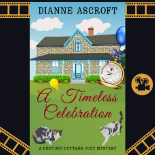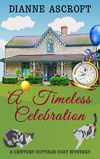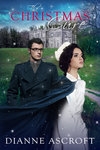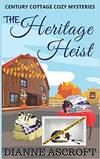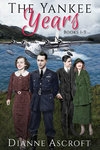A few weeks ago I read Magdeburg by Heather Richardson. This novel is one of the most authentic historical fiction books that I’ve read in a long while. Set in seventeenth century Germany during the Thirty Years War, the book’s detailed siege and battle scenes don’t shy away from the grim reality of warfare. The novel also perceptively portrays the ordinary people, who are caught up in this conflict, trying to live their lives as best they can. Ms Richardson depicts the daily life of the era so well that I lost myself in the story and could imagine that I was there.
Given the events of the period, this novel is sometimes a harrowing experience but also a fascinating one. Reading about characters who are flung into horrific situations, with no chance to escape, left me wondering how I might fare if I were in their shoes. I was gripped and repelled at the same time by their plight and the story still occupied my mind after I’d read the last page.
So I’m pleased that Ms Richardson has agreed to answer a few of my questions about Magdeburg. Here goes –
HR: It’s set in Germany during the Thirty Years War, and centres around three people caught up in one of the major atrocities of the war – the destruction of the city of Magdeburg. The Thirty Years War was partly a war of religion, and the opposing armies were – very loosely – Protestant and Catholic. The citizens of Magdeburg were staunchly Protestant, and found themselves under siege by the army of the Holy Roman Emperor. The novel follows the stories of Christa, a printer’s daughter from the city, and two soldiers in the Imperial army: Lukas and his young protégé, Götz.
What prompted you to write about this particular historic event?
HR: I heard about Magdeburg on a BBC Radio 4 programme several years ago, and thought it sounded like a fascinating story. An historian said the destruction of the city was as big an event in that era as the 9/11 attacks were for us in the late 20th Century. Coming as I do from Northern Ireland, the story of a Protestant walled city besieged by a Catholic army rang a few bells – the Siege of Derry has almost mythical status in Northern Irish Protestant culture. It seemed to me that writing about Magdeburg could be a way of investigating several themes that interest me – Protestant identity; the effect of combat on soldiers; the human capacity for survival – without being inhibited by my own cultural baggage.
The story centres on a grim incident. Was it difficult or depressing to write about it?
HR: Some parts were difficult – there were a couple of violent episodes that I felt I had to describe with as much honesty and clarity as I could. Anything less would have been untruthful. I think if you’re writing about something as serious as war you have a responsibility not to gloss over the horrible reality of it. Although there are a few passages of the novel that I don’t like re-reading.
How closely did you stick to the historical facts? If you used them loosely, how did you decide whether to deviate from them?
HR: One of the benefits of writing about a city that was all but wiped out is that there aren’t many records from the period. That gave me a certain amount of license. Having said that, I worked pretty hard on fact-checking, and it was only when I couldn’t confirm a fact that I’d make an educated guess.
What research did you do for this book?
HR: I discovered a great publisher of popular military history called Osprey. They produce accessible books on key battles that are full of pictures and maps. Their books were a useful starting point, and I then worked my way through the heavier historical sources they’d used. There’s a lot of academic research about Early Modern Germany, and I found some excellent scholarly books of eye-witness accounts of the Thirty Years War, as well as studies of court cases, family letters and so on. I also went to Magdeburg itself, and to Mainz to see all the old printing presses in the Gutenberg museum. I even had a go at learning German.
You use a mixture of historic figures and invented characters in the novel. Which is more difficult to write? Which do you prefer to write and why?
HR: Most of the historic figures in Magdeburg don’t play a big part in the novel – they’re in the background, perhaps being mentioned by the main characters. However, the novel I’m working on now has several real figures in the foreground, and I have to say, I find them much harder to write than my fictional characters. I think I feel a bit inhibited about attributing thoughts and feelings to them when I can’t know for sure if I’ve got it right. It seems a bit presumptuous. I think it also makes me uneasy because it feels somehow unethical to tinker with facts. Writers can’t help but tinker, because real people and their stories don’t conveniently fit into a narrative arc. Once I get this novel finished I’m definitely going to stick with the strictly fictional!
Thanks for taking time to give such thoughtful answers to my questions, Heather. I can relate to your feeling of constraint when writing real people into a story. I had similar experiences when I was working on my first novel (so far the only completed one!). I noticed that you mentioned your next book – now I’m curious…I hope I don’t have to wait too long to learn more about it. Meanwhile, good luck with writing it. I hope we’ll see it on bookshop shelves in the not too distant future.
About the author: Heather Richardson was born in Northern Ireland in 1964. She moved to England when she was eighteen, and after university worked in a range of jobs, from bus driver in Leicester to marketing executive at a private hospital in Harley Street. In 1993 she finally went home to Belfast. Her short fiction and poetry have been published in magazines and anthologies in the UK and Ireland. She teaches creative writing for the Open University.
For more information about Magdeburg and Heather, see Lagan Press’ website.


